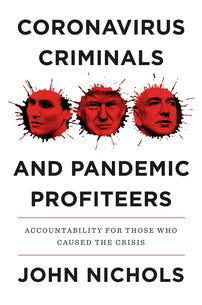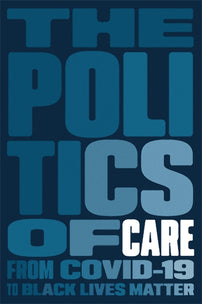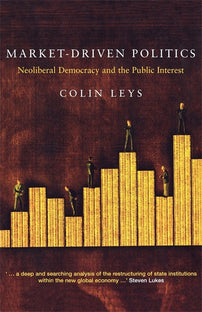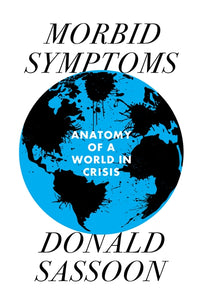Pandemic profiteers forever: how privatised medicine fails the world
Pharma companies have made a killing on the pandemic, in part by refusing to share vaccine technology with manufacturers in the Global South. Though companies like Pfizer hide behind the argument that only profit incentives can drive innovation, Tim Bierley shows that knowledge sharing and publicly-funded pharmaceutical development leads to more equitable production and distribution of vaccines and medications.

Tim Bierley
In March last year, Boris Johnson told a group of Conservative MPs that the success of the UK’s vaccine programme was thanks to ‘capitalism and greed’. His remarks came as the roll-out of AstraZeneca and Pfizer vaccines was speeding up across the UK, with over half the population having received a first jab. While Johnson’s supporters insisted he was joking, his comments are a symptom of the extraordinary PR heist that the pharmaceutical industry has pulled during the pandemic. Listening to big pharma’s telling of the story, we forget that almost every available vaccine received millions in public funding. We ignore that these vaccines were based on technologies developed through years of public research. And we shrug our shoulders at a pandemic response that has prioritised shareholders’ dividends above the health of billions globally who, even today, have yet to receive a single vaccine.
Well before the pandemic, most understood that the big pharma industry was no angels’ collective. The opioid crisis in the US, along with skyrocketing insulin bills, had increased public scrutiny on an industry infamous for its enormous lobby budget and profit margins that would make an oil baron blush. Meanwhile, big pharma’s history of disinterest in the kinds of diseases that hit people in less-profitable markets in the global south hardest was already well documented; as was their sudden and litigious interest when such countries tried to work around the patents that guarantee big pharma’s lucrative monopolies.
Yet, at the beginning of the pandemic, there was some hope that we’d see a more collective response from the companies on which our lives depend. Unprecedented times had already made impossible policies happen. Whole nations were put into lockdown, economies frozen and billions of dollars printed to keep families afloat. To end a pandemic, it seemed world leaders could rip up the rule book.
Encouragingly, the World Health Organisation (WHO) quickly set up a new mechanism where scientists, researchers and pharmaceutical companies could share amongst themselves the patents and know-how needed to make vaccines and treatments. Such collaboration in times of emergency had precedent, including a similar effort by the WHO to pool technology to improve vaccines after the Second World War. This time though, pharmaceutical companies resisted the idea entirely, with Pfizer’s CEO labelling it ‘nonsense’. And while the team behind the Oxford University vaccine were initially keen to share their vaccine rights with any company that could make it safely, it was reportedly pressed by the Gates Foundation to change course, eventually signing an exclusive deal with AstraZeneca. A privatised pandemic response, led by big pharma behemoths was all but locked in.
What ensued was a frenzied scramble to buy up vaccines, supercharged by Donald Trump’s Operation Warpspeed which ploughed billions into advance purchases of Pfizer’s vaccine, as well as funding the development of other vaccines. Similarly, by December 2021, the UK had ordered more than 650 million doses of eight vaccines, nearly enough to provide everyone in the country with 10 doses.
In April 2020, COVAX, an international market-based mechanism was set up to address potential inequalities in global vaccine distribution. The brainchild of Richard Hatchett, the head of CEPI, a foundation that finances vaccine development to stop epidemics, the project aimed to reduce the risk of investing in vaccines by providing pharma companies with a guaranteed buyer. It would, in turn, distribute those jabs at fair prices - free to the poorest. But the model vastly underestimated the level of demand for vaccines and failed to recognise that big pharma would sell to the highest bidder. A full 18 months after its launch, when the rich nations of the global north were rolling out booster shots, just 2% of people in low-income countries had received a single jab.
All this was foreseeable. It was so predictable, in fact, that a group of countries in the Global South took action in October 2020 to try and prevent it. Led by India and South Africa, dozens of countries supported a proposal to change World Trade Organisation rules to suspend intellectual property rights on Covid-19 vaccines, treatments and tests for the duration of the pandemic. This, they argued, would help manufacturers in the Global South copy life-saving medicines without the threat of being sued for patent infringement. Their proposal swiftly received strong support, with even the US eventually backing a limited waiver on vaccines. Research by Human Rights Watch showed that there were over 100 factories in Africa, Asia and Latin America that had the capacity to produce mRNA vaccines if intellectual property were waived and companies shared their technology.
Yet, ultimately, the UK, EU and Switzerland blocked the emergency action needed to make this possible at the WTO. When, after 20 months of delay and obfuscation, a pitiful deal was reached in June this year, it was a belated attempt to save face rather than save lives. By this time the death toll had spiralled terribly. The Lancet estimates that the failure to vaccinate 40% of people in all countries by the end of 2021 cost around 600,000 lives in low-income countries alone.
Meanwhile, the fortunes of pharmaceutical companies received a huge boost. Pfizer’s vaccine smashed the record for annual sales of a medicine, and it is now set to become the first pharma company to clock annual revenues of $100 billion. Meanwhile, Moderna’s vaccine profit margins have reached an eye-watering 70%. Such profiteering should be scandalous on its own, but becomes worse still when considered alongside these vaccines’ roots in public funding. Research on Moderna and AstraZeneca’s vaccines was almost entirely publicly funded, while the revolutionary mRNA technology Pfizer employed was based on decades of tax-payer funded research. While Pfizer doggedly insists it didn’t receive public funding during the pandemic, the bulk of the original development for its vaccine was actually carried out by BioNtech, which – surprise, surprise – received €445 million in German public funding. And while Pfizer executives were apparently keen to avoid allegations of pandemic profiteering, the company has charged up to £24 a dose for a vaccine that is estimated to cost just 76p to produce.
This pattern of big pharma profiteering wherever it can while failing the Global South, is not new; the pandemic was merely the latest instance in a long and chequered history. Structurally predisposed to prioritise shareholder returns rather than health outcomes, the industry has long underinvested in diseases that mainly affect people in countries with lower national incomes. Between 2000 and 2011, only 4% of newly approved products targeted neglected diseases that affect middle and low-income countries most. Meanwhile, malaria and tuberculosis, which together killed over two million people in 2020, also attract comparatively little investment from big pharma.
Perhaps the most notorious case of the industry putting its revenues above people’s lives came at the height of the HIV/AIDS epidemic when, amid annual global deaths of over 2 million, and a treatment that cost a crippling £9,000 per person, Nelson Mandela’s South Africa passed a law that would allow it to import generic medicines. The pharma industry responded with fury to this perceived attempt to override their patents, with 39 companies issuing a lawsuit to prevent the action. The companies eventually withdrew, but only after huge resistance from grassroots movements both in South Africa and internationally.
[book-strip index="1" style="display"]Despite cases like this, the sanctity of pharmaceutical monopolies is still considered an unquestionable good by governments of the Global North. Once a new drug is developed, companies can slap a patent on it, which prevents other firms from selling the same drug for around twenty years from the time the patent is filed. Pharmaceutical companies argue that these twenty-year monopolies are the only way to incentivise the development of new drugs and that any move away from this system would mean we get fewer of the medicines we need. Naturally, the argument touches a nerve. Even those determined to fight for a fairer global system might worry about possible upheaval when friends and relatives rely on medical treatments.
It’s an ugly kind of argument that considers scientists to be nothing more than financially-driven automatons, but thankfully it’s also an easy one to disprove. You don’t have to look any further than that famous cradle of socialism, the United States of America, to find a team of scientists who created a patent-free, profit-free, effective Covid-19 vaccine. This despite the team at the Texas Children’s Hospital receiving paltry funding compared to the vast sums thrown at the likes of Pfizer and Moderna. Cuba also provides a shining example of how state planning can set in place the structures needed to innovate, with the small Caribbean nation boasting one of the world’s strongest and fastest-growing biopharmaceutical industries, including the development of the world’s first lung cancer vaccine. And former World Bank chief economist Joseph Stiglitz, himself no radical, has suggested that one-off prizes could just as easily be used to incentivise medicines production; an idea that would make patents redundant and medicines much cheaper. But even without these clear and obvious alternatives, the idea that patents encourage innovation is frankly one that no one should buy.
The commodification and financialisation of pharmaceuticals leads to hugely perverse results for an industry supposedly geared towards making people healthier. Not altogether dissimilar to sequel-churning Hollywood franchises, big pharma companies often consider new and innovative research to be too risky, so increasingly pile funding into making small tweaks of recipes that have already been proven to sell. Studies have shown that nearly 60% of new drugs now fail to bring any therapeutic advance. This is clearly a staggering waste of time and resources, but as a business model, it brings huge rewards. Pharma companies and the states that back them sometimes say that this medical bounty is necessary to invest in more research and development of new drugs. But in fact, the biggest firms consistently put more money into shareholder dividends or marketing than research. This causes its own problems, not least when we consider the mass deaths caused in the US by the pushing of opioid drugs onto as many people as possible.
While it's clear that a profit-driven pharmaceutical industry hardly invests in medicines for diseases that affect people in poorer countries, richer countries are also sleepwalking into a similar crisis. Antimicrobial resistance has been building steadily in the past decades, with the UN warning that drug-resistant diseases could kill 10 million people a year by 2050. But the pharmaceutical industry has not come up with a new type of antibiotic since the 1980s, again because they aren’t expected to reap great profits.
The argument that pharmaceutical companies need the incentive of potentially huge profits in order to innovate is further undermined by the fact that very few of these firms are actually responsible for developing innovative drugs. One study found that just 11% of Johnson & Johnson’s best-sellers were discovered in-house, while Times journalist Billy Kenber notes that Pfizer hasn’t launched a drug with significant sales which originated and was developed in-house since 2005. Increasingly, pharma companies follow a financialised model, buying up early-stage innovation and then charging the highest prices they can.
As with many of the Covid vaccines, many medicines are rooted in giant public subsidies. Humira, a treatment for various autoimmune diseases, was the world’s most lucrative drug before the pandemic, making $20 billion in 2020, despite being based on antibody technology developed by the UK’s Medical Research Council. Since the drug finally went off patent three years ago, the NHS has saved nearly half a billion pounds by buying generic alternatives. In the US, 75% of new drugs are developed with funding from state research, with similarly hefty funding in the UK.
Thankfully, alternative models that are less beholden to shareholder greed are emerging. One shining example is the team of scientists in South Africa who saw the catastrophic effects of vaccine monopolies during the pandemic and took matters into their own hands. Teaming up with the WHO to make a version of Moderna’s vaccine, they initially appealed to the American company to transfer technology to its vaccines hub. True to form, Moderna refused. Undeterred, the South African scientists successfully reverse-engineered a version of the vaccine. Now, instead of hoarding its recipes and know-how, the hub has already started freely sharing the science with 14 other countries. Not only could this make a major dent in the power of pharmaceutical monopolies, but it could also hand greater control to countries in the Global South. Perhaps most significantly, the hub plans to deploy the mRNA technology not just to battle Covid-19 but also malaria, HIV, cancer and TB. If more production is in the hands of scientists in the Global South, that science is far more likely to work for the lives of people living in those countries.
As already noted, Cuba also offers a strong example of how state-led innovation can lead the way. Despite being a small nation under heavy embargo, it has developed two successful, homegrown Covid-19 vaccines. Moreover, it has also pledged to support countries in the region, first by exporting vaccines, and then transferring production technology to other countries that need it. Cuba’s case also shows how nationalised pharmaceutical systems can be more flexible than big pharma companies. Rather than being in thrall to shareholders chasing high profits, they have room to pursue the medicines that will bring maximum health benefit.
Even before nationalisation, Mariana Mazzucato has argued that governments could do far more to apply conditions that ensure cheaper access to drugs where public funding is used, not to mention a greater proportion of royalties. Such a move could raise important funds for further scientific research or investment in other areas of health. Not only would it be reasonable to expect the public to gain a share of the revenues produced by public research but given its tax-payer backing, but the medical science itself should also be publicly available. In such cases, intellectual property rights could be avoided completely, shared through open licensing, or allocated in patent pools. A more collaborative and open approach to knowledge would likely encourage more medical innovation, especially when compared to the strangling effect of patents and the litigious monopolies that hold onto them.
If it was not clear before, the pandemic has decisively shown that the current model of big pharma monopolies is terrible for our health. As one former employee of the industry recently recounted, the attitude of the industry is that, ‘If Grandma is on the table, no one is going to blink at paying $10,000 to save her life.’ This is an industry which under-invests in life-saving research, privatises public knowledge and then holds health systems to ransom. If we are to learn anything from this pandemic - and the historical struggles to access medicines that came before it - we must strive to replace it. The risk of business as usual is far too great.






